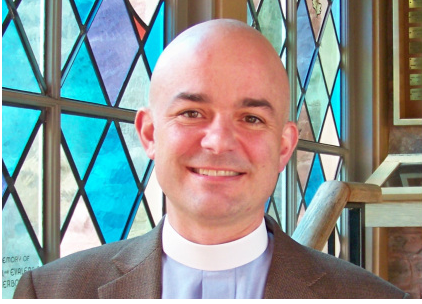
I’m finding that I use what I’m learning from the College not only at church, but in my personal life as well. Three simple examples: we now do a Force-field Analysis on nearly every project at St. George’s. Drilling down to a concrete and manageable From-To statement helps break down big projects into manageable tasks, and clearly identifying Driving and Restraining forces shows us the path(s) to successful completion (or convinces us to use our energy and resources elsewhere). I’ve also been using Force-field Analysis at home. I own a house built ca. 1890. I love it, but it needs a lot of work, so much work that I’ve been in a state of paralysis for the last couple of years on how to proceed. Over the last month or so, I’ve been scribbling and editing From-To statements and Driving and Restraining forces to help me figure out what projects to tackle first and how to get them accomplished with the limited resources I have (time, skills, and, of course, money). I’ve got a couple of projects identified and planned for this summer.
At the College, one of the trainers said before an exercise, “You are a smart group of people with a lot of church experience: your gut is probably spot on. We’re just going to hold back and make sure we have gotten all the information we need to assess the situation.” That has become a mantra for me. I’m a strong MBTI “N,” but I’ve learned the (shocking!) truth that my gut is not always right. At St. George’s, we have a couple of longtime female members who sort of invite themselves to sit with visitors and help guide them through the service. I was sure that, as well-meaning as the women were, this practice would scare off newcomers, because as a very strong MBTI “I”, I would find it intrusive and unwelcome. Last fall, we held several informal dinners for newer and longtime members, and we had conversations about how they found us and what their first visits were like. Without prompting, several mentioned how much they appreciated the help and guidance they received during worship from the (intrusive) women. Similarly, I’ve gone down weird pathways with friends because I thought I knew what they were thinking or what they wanted, but hadn’t checked it out with them. Gut instinct is great, but it’s a good idea to check in with reality and gather some information to see if I’m on the right track.
At St. George’s, like other congregations that have experienced decline over a number of years, we’re pretty good at focusing on the ‘problem’: not enough people, not enough money, not enough leadership, not enough, not enough, not enough. It’s a comfortable narrative, but it leaches away our remaining energy and life. Appreciative Inquiry helps us see our congregation and our context in a new and life-giving way. Instead of focusing on what isn’t here, we focus on what is, and we find that God’s call is taking us to places where there are more than enough resources: Enough love. Enough forgiveness. Enough room. Enough bread. Enough wine. Even, enough money. It helps us, and it helps me, to see our congregation and our lives as God sees us: full of potential and beauty, gifted with everything we need to do the work God has given us.
Come to the College: it will be a gift to you and to your congregation.